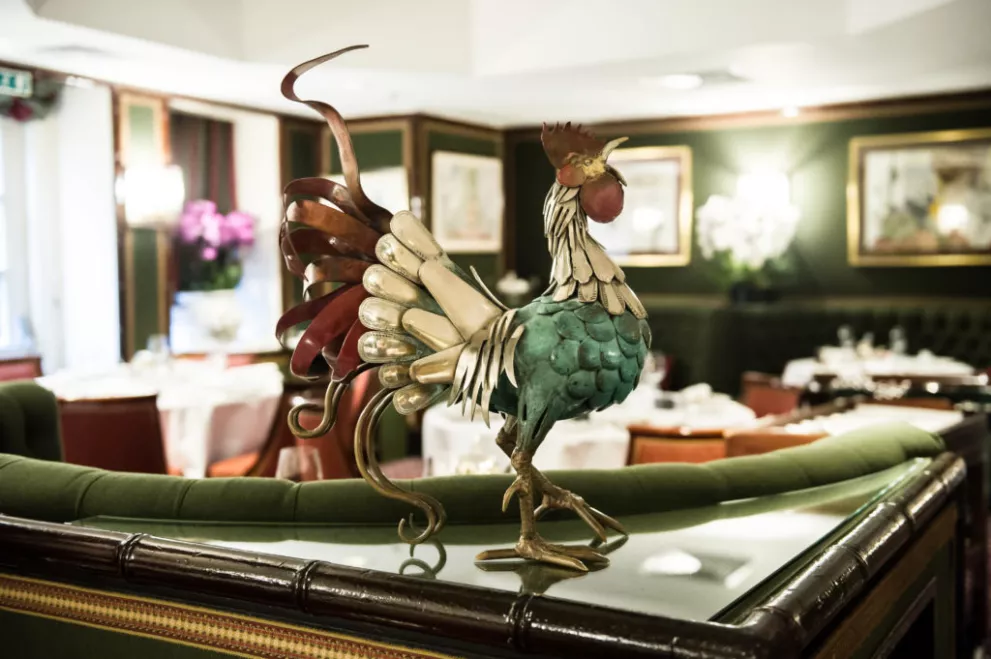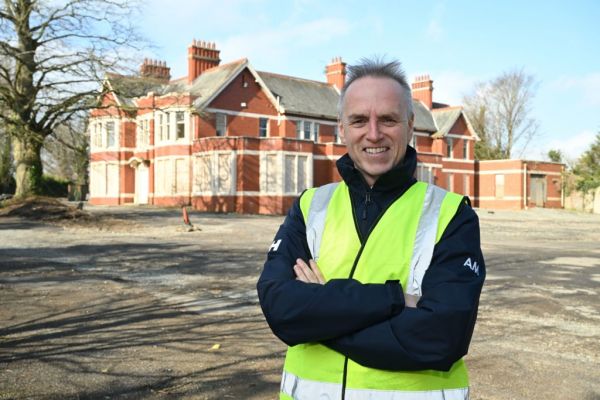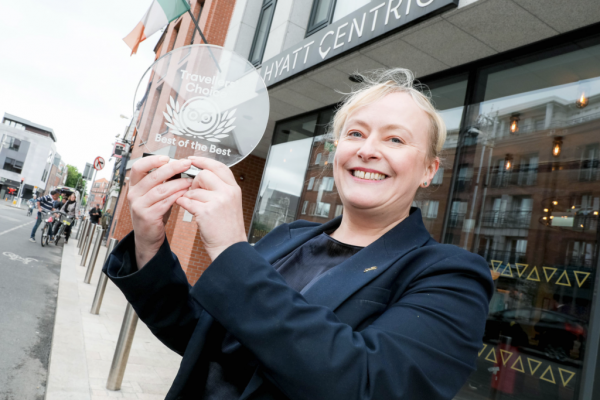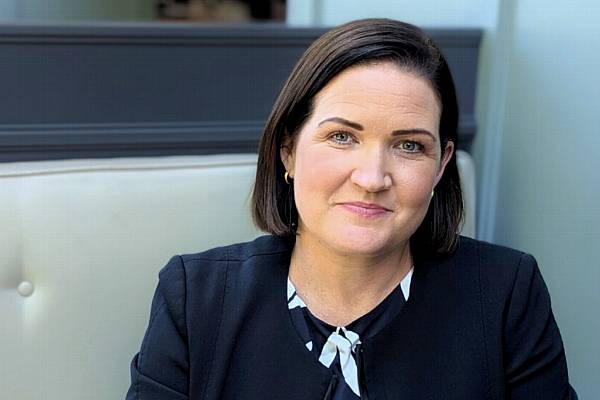MICHEL ROUX JNR has a background steeped in food and restaurants. He has run the Michelin two-star Le Gavroche in London since 1991, is a media personality, author of several cookbooks, and a twenty-plus-times marathon runner. Emily Hourican spoke to him, midway through a year he has described as ‘the hardest of my life,’ in which he lost his father, Albert Roux, his uncle Michel Snr, and very nearly his business.
This article was originally published in the Spring 2021 issue of Hospitality Ireland Magazine, in April of 2021.
My first question to Michel Roux Jr is, as I readily admit, slightly idiotic: how has the year been for him?
“It’s been incredibly difficult,” he says, frankly. “The first lockdown came to me as no surprise because I have friends in the hospitality business all over the world, and I could see it coming. In France, they locked down two weeks before, so I could see it coming, but, nonetheless, it always is a shock. You think, how the hell are we going to get out of this?
“When it was announced, it was announced very quickly. We had a couple of days, if that – a day and a bit – to close down. A lot of my staff members were in tears, saying, ‘What’s going to happen? What am I gonna do?’ So, it was tough.
“When we did close down, the fridges were full, and I didn’t know what to do with all of my members of staff. I pledged to look after them financially. I had words with all of them and said that I would look after them as much as I could, before the Chancellor announced furlough. Once he did that, it was a big sigh of relief because it meant everyone was going to get something to keep them going. Then, on the evening that we did close, I got loads and loads of bags, and we distributed food to everybody. We had the sommelier bring out cases of wine, and we gave two or three bottles of wine to every single member of staff, wished them well, and said that hopefully we would see them all soon.”
It was, Michel recalls, “dreadful, absolutely dreadful.”
That sounds almost traumatic, I say.
“It was fairly traumatic. It has been absolutely dreadful, and the deaths in the UK have been absolutely awful. I lost my father a few weeks ago” – the legendary Albert Roux passed away in January, his uncle Michel Snr died in March 2020 – “so I know that it really is painful.”
It is, we agree, very hard to strike a balance between concern over people and concern over the economy, people’s justifiable feelings of trauma around the threat to their families, and also to businesses that they may have built up – hospitality businesses, for example, built up over years, if not generations, that are just suddenly annihilated. It is, we agree, a perfect storm of terrible happenings.
“It is,” Michel says. “We have to balance lives and livelihoods because if you take away the livelihood, then I fear that lives are going to be going as well. I think of the mental-health issues this is causing, and that we will be suffering from that for generations. Every single government out there is trying its hardest to balance that – livelihoods and lives. It’s not an envious position to be in.”
It feels, at times, like there are no good decisions at this stage, I say.
“We are playing with people’s lives and livelihoods. Businesses that could have been built up over the years are just being crumbled away, and so I think more could be done. More could be done for businesses to keep them afloat because, let’s not forget, for all that there is misery in the bad times, there are some people who are absolutely filling their boots. Some people are making vast amounts of money out of this, which is sickening. Now, surely there should be something done there to sort of redistribute that, so that everyone shares this burden? I think the biggest problem,” he says, “is that we don’t yet see an out. The vaccine is great and wonderful, but it’s almost like a worldwide experiment. We don’t know exactly how it will play out.”
Of course, uncertainty is the enemy here. Could he have envisaged a year ago that we would still be here, with much the same kind of uncertainty around opening up?
No. Absolutely not. I thought it was going to be a matter of weeks. A year on, we are going to need financial help and support. The furlough system is great, to help people save employment, but it doesn’t actually help businesses. For example, this month, keeping my 40- or 50-odd staff on in my restaurant cost me ten grand in National Insurance and pension costs, so it’s a cost to the business. The furlough scheme is good, but it’s not helping me stay afloat.”
Is there any turnover while the restaurants are closed?
“I’ve done a couple of online courses, and we’re selling a few books and things like that, but it’s nothing, and the grants don’t even touch the sides. More has to be done. The business rates holiday comes to an end, so what happens after that? I have to start paying my business rates when I have no clients? If they do impose the business rates again, no one’s going to pay it because they can’t. I mean, it’s simple.”
Did he think about doing any of the ‘pivoting’ – elaborate takeout menus, and so on – that other places tried?
“I did toy with it. We did a bit in October-November, and it was OK, but it was an incredible amount of work for very little. The quality was alright, but I was not 100 per cent pleased. I didn’t think it was a 100-per-cent true image of what Le Gavroche offers, so I kind of thought, hang on, let’s put a break on this. Let’s not do bulk. Let’s do bespoke – smaller quantities of takeout meals if people want it, rather than trying to do massive amounts of quantities. We were churning out 400-odd meals a week in takeaway at one stage. Do that, and you lose the connection and the beauty of Le Gavroche.”
It’s something, I suggest, that suited small neighbourhood restaurants, but are easier to control and put measures in place. A pub is a little bit more difficult to maintain, and maybe there has to be a distinction between the two, but there also has to be more help given to the pubs, particularly the wet pubs – the name ‘wet pubs’ is just horrible – but if they are going to stay closed longer because of restrictions, then give them more financial help.”
He points out, “In the industry, we don’t want financial help. We want to open. That is the ultimate goal. We don’t want to go around with our begging bowl, asking for financial help to keep us afloat. We want to open our doors because if we open our doors, we put staff back, and that is the thing.”
Hospitality is an industry full of incredibly hard-working, self-starting people. Nobody wants to be sitting at home on a government subsidy. Does he worry about staff when the industry does come back, that people who have worked within the industry, who are proficient and talented and experienced, will have been scared off so badly by what’s happened over the last year that they may go and look for other jobs in other sectors?
“It could be, but the problem is: there are not that many jobs out there at the moment. I think that we are a resilient bunch, and when we do get the opportunity to reopen, we’ll hit the ground running.”
On a more personal level – given the family pedigree from which Michel comes – did he ever have any other career in mind, or was it always going to be restaurants?
“I was always for hospitality!” he laughs. “I always loved it.”
What does he love about it?
“It’s the sheer enjoyment of making people happy and the conviviality of a busy restaurant. It’s difficult to describe, but I think, in business, there is no other job like it. In fact, it’s not a job – it’s a way of life.”
That must have made lockdown even more difficult, in a way – missing what you love. How did he cope?
“I’ve been cooking at home. I think it’s funny to see that people have been cooking at home and saying it’s therapeutic. I do it for a living. I’ve been kept busy, and I think what’s important for mental health, as well, is a routine. You’ve got to have a nice routine to keep going – getting up early, not being lazy. It’s important, as well, to be keeping fit.”
Running is Michel’s thing, meaning: his exercise hasn’t been gym dependent. Running, we agree, has proved itself a true friend in the last while, however, he admits to having found the second lockdown more difficult.
“I think it’s much easier to be locked down or have nothing open, nothing to do, when at least you can go outside,” he rightly says. “Looking out the window at rain, the last thing you want is to go outside, and then, definitely, there was the weariness of, ‘God, another lockdown. How long is this going to take?’”
Yet, he is decidedly upbeat about the future – or maybe just determined?
“It will take time, and we’re not out of it, and life may never be quite the same. We may have to social distance a little bit more and travel may not be the same – and other things, too – but we will get used to it, and we will work our way around it. We’ve got to stay positive.”

La Gavroche
Le Gavroche At a Glance
OPENED IN: 1967 by Albert and Michel Roux Snr and run by Michel Jr since 1991
COVERS: 65 Lunch; 75 dinner
STAFF: 55 including 3 office staff, equally split between front and Back of house
PERCENTAGE BREAKDOWN BETWEEN FOOD & BEVERAGE: 55% drinks 45% food
Read More: Hospitality Ireland Spring 2021: Read The Latest Issue Online!








